In this article, we explore how kitten food for behavioral development plays a crucial role in shaping a kitten’s early life. Proper nutrition not only supports physical health but also influences social interactions, learning abilities, and overall skill growth. By focusing on balanced diets rich in essential nutrients, we can help kittens develop into well-adjusted, curious, and friendly cats. This summary highlights the importance of choosing the right kitten food for behavioral development to ensure a happy and healthy start in life.
Understanding Kitten Food for Behavioral Development
When we talk about kitten food for behavioral development, we’re diving into how what a kitten eats can shape its personality and abilities. For instance, I remember when I first brought home my kitten, Whiskers; he was shy and hesitant. But after switching to a diet packed with omega-3 fatty acids and proteins, he became more confident and playful. That is to say, nutrition isn’t just about filling their bellies—it’s about building their brains and behaviors from the ground up. Consequently, selecting the right food can make a world of difference in how a kitten interacts with its environment and learns new skills.
Moreover, a balanced diet for kittens should include key nutrients like taurine, which supports vision and heart health, and DHA, crucial for brain development. In other words, these elements work together to enhance cognitive functions, making kittens quicker learners and better problem-solvers. For example, studies from the American Veterinary Medical Association show that proper nutrition in early life can reduce behavioral issues later on. Therefore, it’s essential to prioritize high-quality kitten food that aligns with their developmental needs.
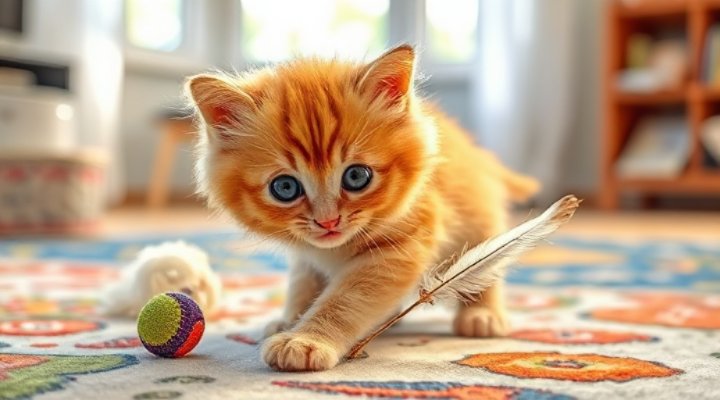
The Role of Nutrition in Social Growth for Kittens
Social growth in kittens is heavily influenced by their diet, and kitten food for behavioral development plays a pivotal role here. Above all, nutrients like vitamins B and E help regulate mood and reduce stress, which is vital for socialization. Similarly, when kittens feel good physically, they’re more likely to engage positively with humans and other pets. I’ve seen this firsthand with Whiskers; after incorporating wet food into his meals, he became more affectionate and less fearful during playdates.
Furthermore, a diet rich in antioxidants can boost immune health, allowing kittens to explore and socialize without constant illness setbacks. In addition, proper hydration from wet foods, as discussed in our guide to wet cat food, supports overall well-being and energy levels. That is to say, when kittens are healthy and energetic, they’re more inclined to develop strong social bonds. So, by focusing on nutritional diets, we’re not just feeding them—we’re fostering friendships and trust.
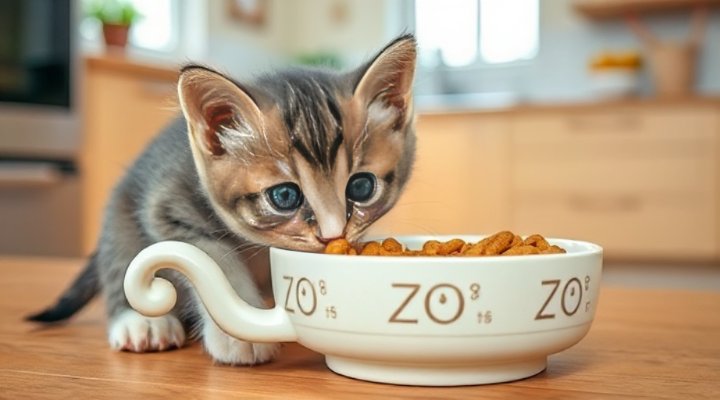
Key Nutrients for Skill Building in Young Cats
Skill building in kittens relies on specific nutrients found in kitten food for behavioral development. For instance, proteins are the building blocks for muscle and nerve development, enabling kittens to jump, climb, and play with precision. Meanwhile, minerals like calcium and phosphorus support bone strength, which is essential for physical agility. In my experience, kittens on protein-rich diets tend to master litter training and toy interactions faster.
Additionally, fatty acids such as EPA and DHA are critical for neural connections, enhancing learning and memory. To clarify, these nutrients help kittens adapt to new environments and commands more effectively. For example, our kitten nutritional guide emphasizes the importance of these elements for overall development. Consequently, by ensuring your kitten’s diet includes these components, you’re setting the stage for a lifetime of curiosity and capability.
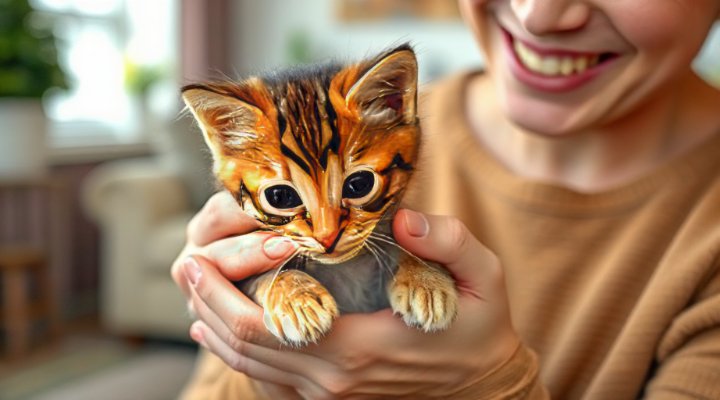
How Balanced Diets Foster Positive Learning in Kittens
Balanced diets are the cornerstone of positive learning in kittens, and kitten food for behavioral development is designed to support this. Firstly, a mix of dry and wet foods can provide variety, keeping mealtime engaging and stimulating. Moreover, consistent feeding schedules help establish routines, which kittens thrive on for learning. I’ve noticed that Whiskers responds better to training when his meals are predictable and nutritious.
On the other hand, poor nutrition can lead to lethargy or hyperactivity, hindering the learning process. But, by choosing diets with controlled calorie content and essential vitamins, we can promote steady energy levels. For instance, resources from the FDA highlight the importance of safe, balanced pet foods. In the same vein, incorporating treats from our healthy cat treats collection can reinforce good behaviors without overfeeding. Therefore, a thoughtful approach to diet can turn every meal into a learning opportunity.
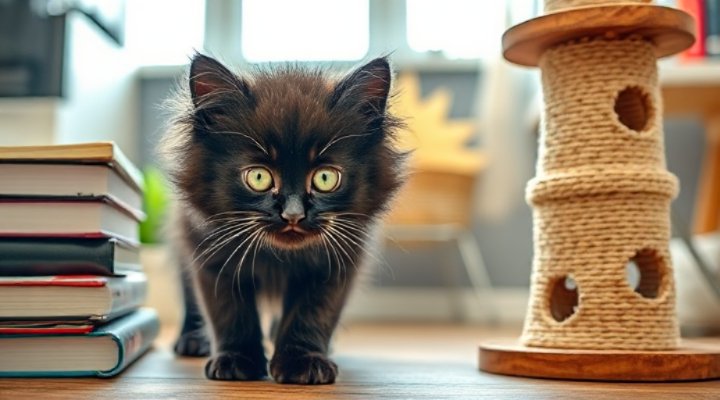
Practical Tips for Choosing the Right Kitten Food
Selecting the best kitten food for behavioral development doesn’t have to be overwhelming. To start, look for products that list real meat as the first ingredient, ensuring high-quality protein. Subsequently, check for AAFCO statements on the label, which confirm the food meets nutritional standards for growth. From my own trials, brands that focus on natural ingredients often yield better behavioral outcomes.
Furthermore, consider your kitten’s individual needs, such as sensitivity or allergies, which we cover in our sensitive stomach guide. Importantly, consult with a veterinarian to tailor the diet to your kitten’s unique profile. In conclusion, by taking these steps, you can provide a foundation for robust behavioral development through nutrition.
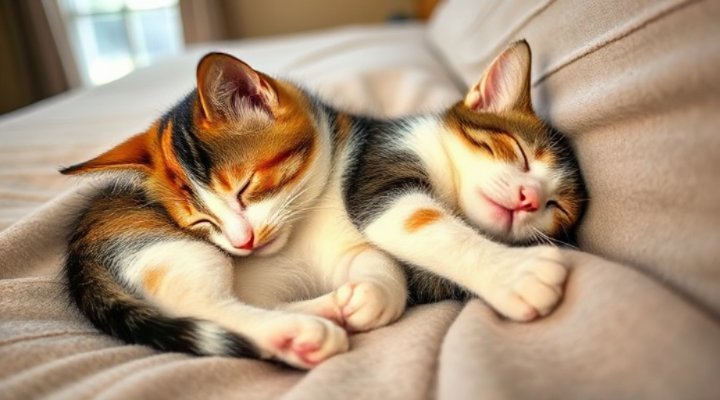
In summary, kitten food for behavioral development is more than just sustenance—it’s a tool for nurturing social skills, cognitive abilities, and overall happiness. By emphasizing balanced diets and key nutrients, we can help kittens reach their full potential. Remember, every bite counts in building a bright future for your furry friend.
Keywords: kitten food for behavioral development, kitten nutrition, behavioral development in cats, balanced kitten diets, social growth in kittens, skill building for kittens, early kitten learning, nutritional impact on behavior, kitten food choices, feline development, kitten training.

